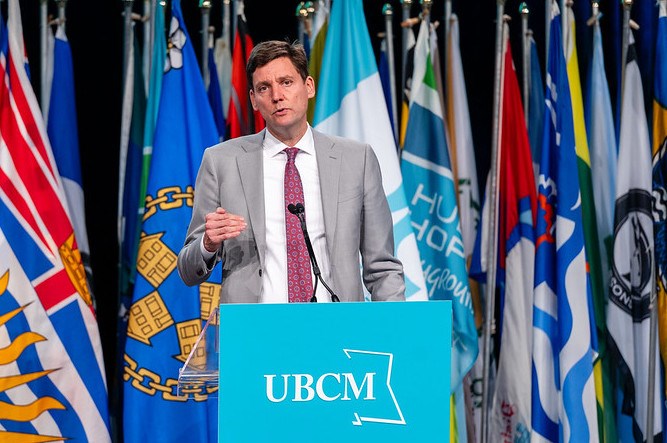Premier David Eby expects there to be lawsuits in response to the involuntary addiction care treatment model the NDP government is advocating.
Called secure care by some, initial action entails putting those with severe substance use disorders into Surrey Pretrial Centre or a facility at the Alouette Correctional Centre for Women in Maple Ridge — and in more hospitals, starting in Northern Health.
Eby announced Sept. 15 that the province will provide involuntary care for people dealing with both mental illness and drug addiction, as well as severe brain injuries caused by repeated drug overdoses.
“For people with these three overlapping conditions, we know that the current response that we offer is not adequate,” Eby said. “They are not safe and, increasingly, I’m concerned that the way that they are interacting in our communities is making everybody less safe.”
Added Eby: “We’re going to respond to this situation as a family member would — with compassion and concern to ensure that the safety of these folks is protected and looked after, and by doing so, we’ll ensure our broader community is safe as well."
However, Eby told reporters at a Union of B.C. Municipalities' news conference Sept. 19 that he expects lawsuits as a result of the move.
He made the comment when asked about Charter of Rights and Freedoms challenges from people being forced to do something against their will.
Indeed, there are options available under provincial law to hold someone for their own protection.
There is, however, the Charter right saying, “Everyone has the right to life, liberty and security of the person and the right not to be deprived thereof except in accordance with the principles of fundamental justice.”
And that’s a double-edged sword: does someone suffering from a chronic mental illness capable of making decision for themselves, and are they a threat to the exercise of that same right by others?
Eby said it is “inevitable” there will be court challenges when asked about the Charter issue.
However, said Eby, a lawyer, the courts would expect government to prove there is a connection between the actions and the needed outcome.
Still, he said, there is a group of people who have fallen through the cracks of the system who are very challenging to help.
The premier’s promise comes as the provincial election campaign is set to launch this weekend, amid concerns about the toxic drug crisis, related street crime and stranger attacks.
The move aims to help those who are mentally ill, addicted and brain-injured who are in desperate need of care but are caught in a revolving door of crime and street entrenchment.



